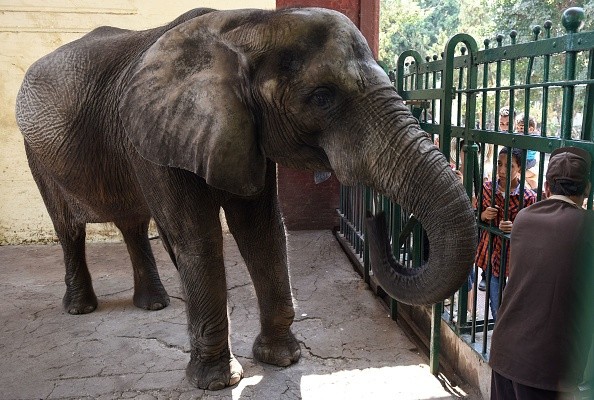The historic zoo was indeed the region's first and served as a symbol of Egypt's modernity.
However, its practices, which experts say date back to the 1950s, and its facilities are in desperate need of an update.
Animal welfare refers to how an animal copes with the circumstances in which it lives.
This also pertains to the animal's condition; treatment of an animal is covered by terms including such animal care.
A great place to deal with different kinds of animals is a zoo

Zoos and aquariums frequently receive negative press, sparking debate about how beneficial they are to wildlife, as per Children's Nature Retreat.
The vast majority of zoos enrich the lives of animals in a variety of ways. Many zoos exist to encourage and facilitate animal conversation, in addition to connecting people with nature.
Having animals in captivity acts as a buffer against a population collapse in the wild.
Zoos have assisted in the removal of animals from the endangered species list, saving many from extinction. There would be fewer animal species currently alive if zoos did not exist.
Animals can live as well as or better than they would in the wild.
They don't have to deal with the stress and threat of predatory animals, the pain of parasitic infections, injury, or illness, and they won't go hungry or thirsty.
Egypt's zoo renovation raises concerns regarding animal welfare
A recent government declaration that it would close its doors for a year in order makes improvements have indeed been met with skepticism by the general public and animal welfare organizations alike, as per the BBC.
The factory worker, who earns just under $100 (£82) per month, seems to have little money for leisure activities and fears that the zoo would become unaffordable in the near future.
Egypt's ministry of agriculture has delegated responsibility for the 80-acre zoo and gardens to a military-run company and a United Arab Emirates-based consultancy for the renovation. In exchange, they will be entitled to profits earned over the next 25 years.
Elephants tied down on short chains, a giraffe so depressed that it killed itself, and monkeys provoked by children have all received negative attention in recent years.
Keepers are still undertrained and underpaid today.
Many people withhold food from animals till the visitors pay for it, and they will harass caged animals and make them roar or learn new tricks in return for tips.
One of the numerous reform proposals promised is that the Victorian-style, cell-like cages for lions and bears will be replaced with open-range areas.
Advocates for animal rights, on the other hand, are concerned.
They claimed that the zoo's plans are opaque and do not prioritize the welfare of the animals, which also include endangered species.
Giza Zoo has indeed been regarded as a wonderland by Egyptians for generations.
However, it has increasingly conjured horrors, to become a visible sign of faded glory.
While many have wished for an expensive modernization, there is concern that new plans would then overlook poorer Egyptians as well as the vast array of animals in desperate need of good healthcare, ranging from big cats to desert rats.
© 2025 NatureWorldNews.com All rights reserved. Do not reproduce without permission.





